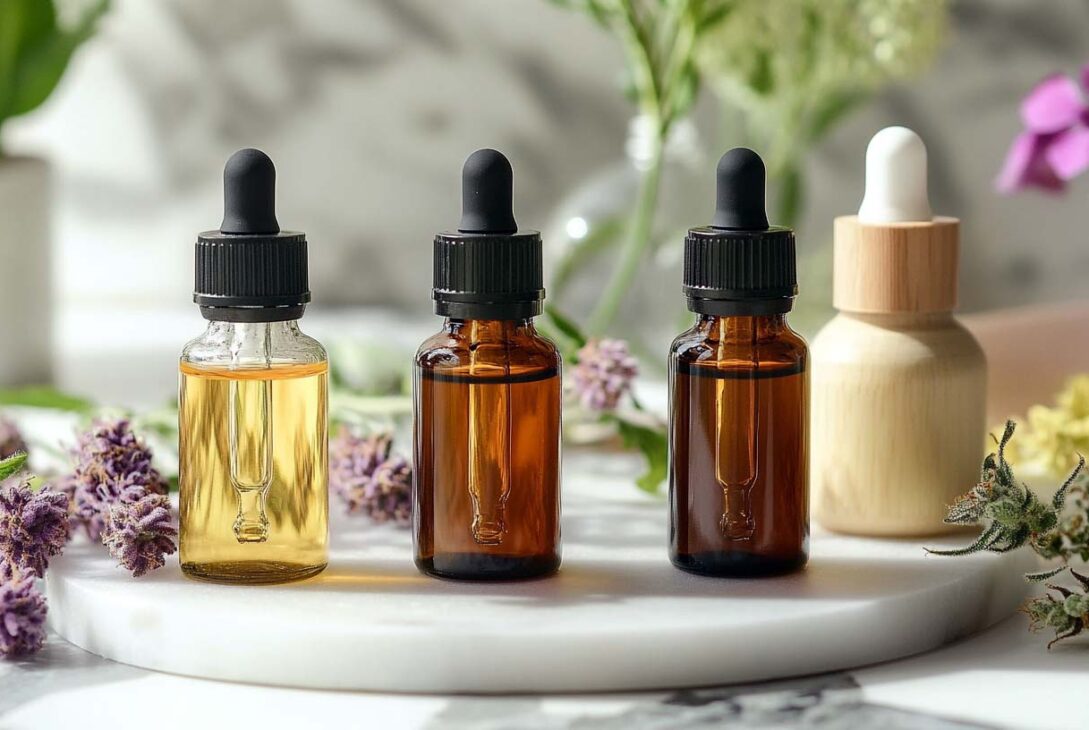The Benefits of Using Full-Spectrum vs. Broad-Spectrum CBD: A Comprehensive Guide
In the evolving landscape of hemp products, CBD has emerged as a pivotal player, enticing many with its potential benefits. As consumers, the options can be overwhelming, especially when distinguishing between full-spectrum and broad-spectrum CBD. Understanding these differences is essential in choosing the product that best meets your needs. This guide will explore what each type of CBD entails, their respective benefits, and how to make a choice that aligns with your health goals.
Understanding Full-Spectrum CBD
What is Full-Spectrum CBD?
Full-spectrum CBD is a holistic extract that contains the entire range of cannabinoids, terpenes, and other beneficial compounds found in the hemp plant. This includes CBD, CBG, CBN, and trace amounts of THC (up to 0.3% as per legal standards in the United States). The presence of multiple compounds is crucial as it contributes to the product’s unique effectiveness.
Benefits of Full-Spectrum CBD
- Entourage Effect: One of the hallmark benefits of full-spectrum CBD is the entourage effect. This term describes how the different cannabinoids work together synergistically, enhancing each other’s therapeutic effects. In many instances, users find that full-spectrum products offer more potent overall benefits compared to isolated compounds.
- Therapeutic Benefits: Research suggests that full-spectrum CBD may be particularly effective for managing pain and reducing anxiety. Its combined cannabinoid makeup offers potential neuroprotective effects and contributes to a more holistic experience, mimicking the plant’s natural profile.
- Regulatory Compliance: Provided that the THC content does not exceed 0.3%, full-spectrum CBD products meet federal regulations, making them widely accessible.
Understanding Broad-Spectrum CBD
What is Broad-Spectrum CBD?
Broad-spectrum CBD serves as a middle ground between full-spectrum CBD and CBD isolate. It encompasses a broad array of cannabinoids and plant compounds, but, importantly, it is completely THC-free. This allows users to benefit from many cannabinoids without any psychoactive effects.
Benefits of Broad-Spectrum CBD
- THC-Free: One of the primary advantages of broad-spectrum CBD is its complete absence of THC, making it an attractive option for individuals needing to avoid THC due to legal concerns, drug testing, or personal preference.
- Entourage Effect Without THC: Even without THC, broad-spectrum CBD can still provide many of the entourage effects. Its variety of cannabinoids means users can still experience benefits, including pain relief and improved sleep.
- Legal and Workplace Compliance: For individuals in industries with strict drug policies, broad-spectrum CBD offers a safer alternative, eliminating the risk of triggering a positive drug test.
Full-Spectrum vs. Broad-Spectrum CBD: Key Differences
Cannabinoid Profiles
- Full-Spectrum: This contains all cannabinoids, including trace amounts of THC, allowing for the full potential of the entourage effect.
- Broad-Spectrum: This features numerous cannabinoids but excludes THC, maintaining the benefits of an array of plant compounds.
Effects and Potency
- Full-Spectrum: Users may experience stronger effects due to the inclusion of THC, which can enhance overall therapeutic benefits. Individual responses can vary, and what works well for one person may differ for another.
- Broad-Spectrum: While it provides a THC-free option, some individuals might find it offers slightly less potency compared to full-spectrum products.
Production Process
- Full-Spectrum: Generally, it is less processed than other types, closely resembling the original plant.
- Broad-Spectrum: This requires additional processing steps to eliminate THC, often making it slightly pricier.
Choosing the Right CBD for Your Needs
Personal Preferences
If you’re seeking the most holistic and multifaceted experience, full-spectrum CBD could be your best bet. On the other hand, if avoiding THC is paramount—whether due to personal choice or legal reasons—broad-spectrum CBD would be the right fit.
THC Sensitivity
Individuals who are sensitive to THC or who have to comply with drug-free workplace policies should lean towards broad-spectrum CBD, ensuring peace of mind without compromising wellness.
Specific Needs
For those managing chronic pain or severe anxiety, full-spectrum CBD might offer more pronounced relief thanks to its entourage effect. However, for less severe symptoms or if you prefer a THC-free option, broad-spectrum CBD could suffice comfortably.
Real-World Applications and Trends
Anxiety and Stress Relief
Both types of CBD have been well-documented for their potential to alleviate anxiety and stress, but full-spectrum CBD may offer enhanced benefits owing to THC’s interaction with the body’s endocannabinoid system. This interaction can play a significant role in mood regulation and emotional stability.
Pain Management
When it comes to chronic or intense pain, full-spectrum CBD is often highlighted for its robust effects, known for interacting effectively with pain receptors. Conversely, broad-spectrum CBD may be a suitable alternative for milder pain conditions or for individuals wanting to avoid THC.
Sleep Improvement
Many users turn to CBD for sleep enhancement, but the choice between full-spectrum and broad-spectrum should align with personal preferences regarding THC. While full-spectrum CBD can enhance the entourage effect and potentially improve sleep quality, it may also lead to grogginess if taken at higher doses. Broad-spectrum CBD provides a THC-free waning that may still promote better sleep without the risk of unwanted side effects.
Conclusion
Choosing between full-spectrum and broad-spectrum CBD boils down to understanding your personal preferences and unique health needs. Here are some actionable takeaways:
- Full-Spectrum CBD: Recommended for those seeking a more potent, natural experience enriched by the entourage effect of multiple cannabinoids.
- Broad-Spectrum CBD: Ideal for individuals wanting to avoid THC while still gaining the benefits of various cannabinoids.
Before embarking on your CBD journey, consult with a healthcare professional to align your choices with your health status and medication regimen. As you navigate through the different options, ensure to read product labels carefully, confirming the cannabinoid content and compliance with federal standards.
By selecting the right type of CBD product, you can effectively harness the benefits of hemp-derived wellness products, helping to enhance your overall quality of life.
Actionable Tips
- Stay Informed: Keep yourself updated on the latest research and trends in CBD to make educated choices.
- Start Low: A gradual approach often works best. Begin with lower doses and adjust as needed to find what works best for you.
- Document Your Responses: Keeping notes on how different products affect you can help refine your choices moving forward.
Explore your options, stay informed, and understand what your body needs. With the right knowledge in hand, you’re well on your way to maximizing the benefits of CBD.





















